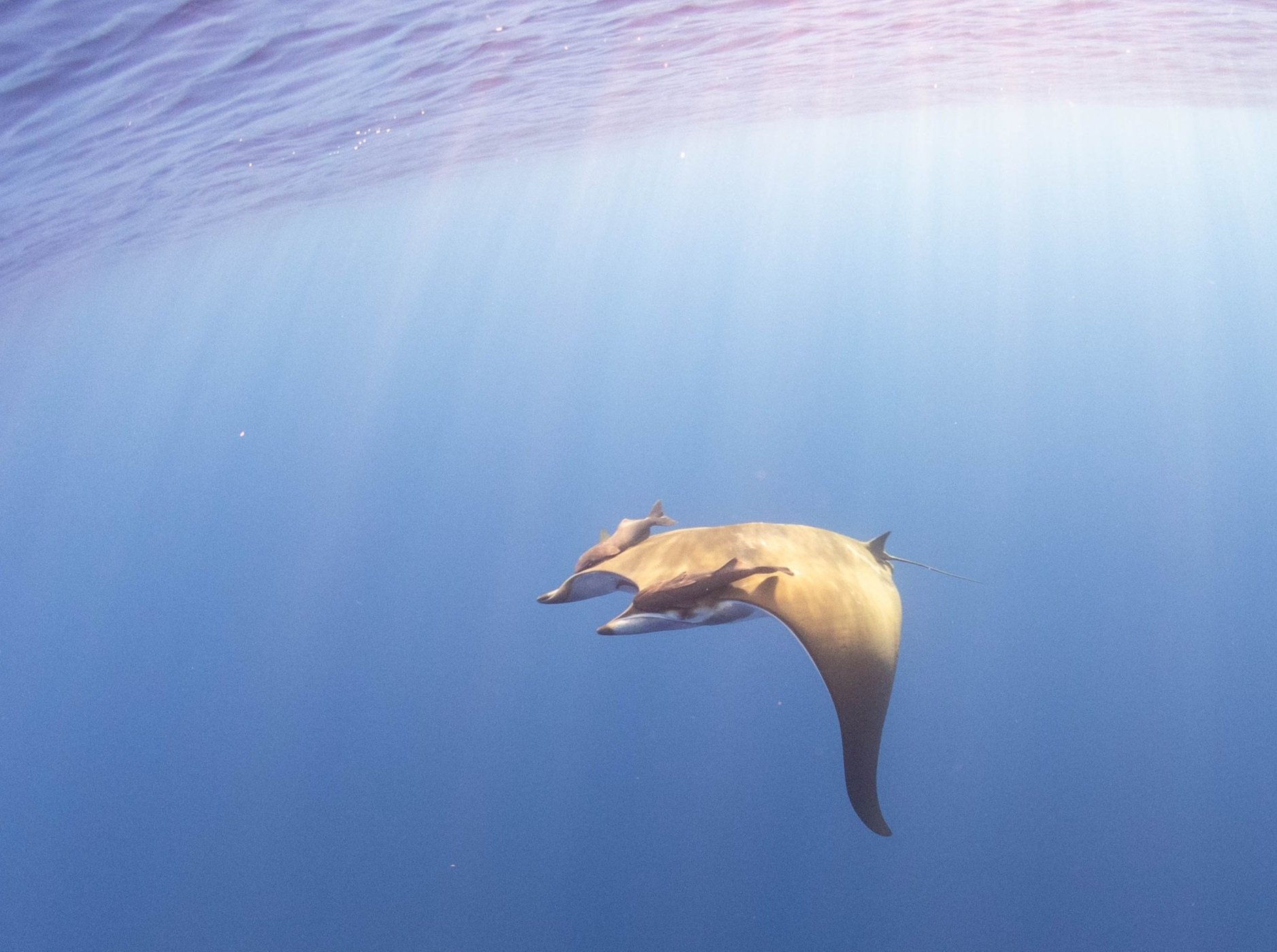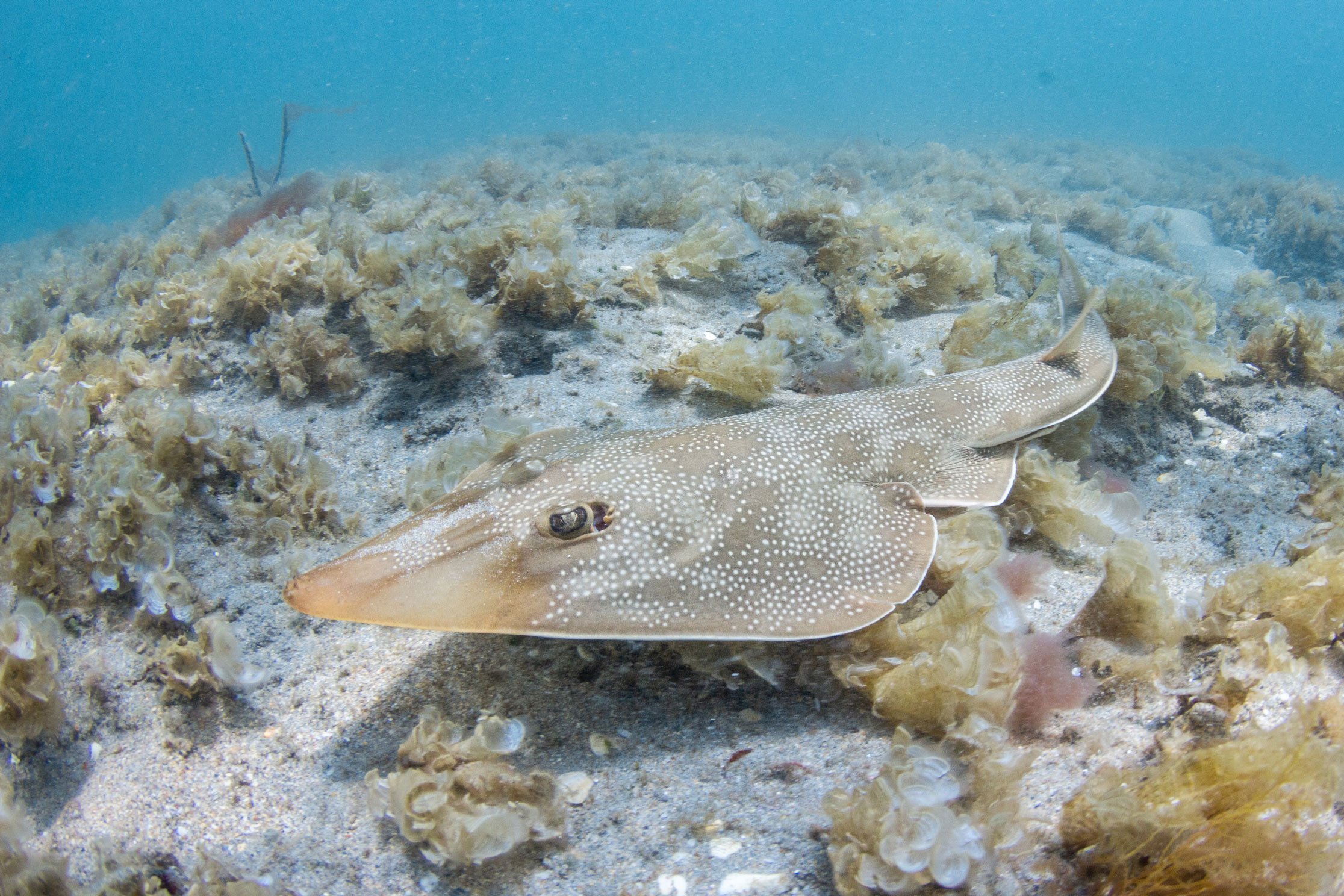
Projects in the Americas
Guitarfish and Devil Rays
What’s this project about?
The Florida Manta Project has expanded its research to include other less-studied elasmobranchs. Among Florida waters is the less-explored Atlantic Guitarfish, a small rhino ray. Additionally, four species of mobulid rays inhabit Florida’s waters but have been largely overlooked in research.
Our pioneering work aims to fill knowledge gaps in guitarfish and mobulid ray distribution and life history, identify critical habitats, and promote conservation and awareness.
Key successes to date
Published a range extension of the sicklefin devil ray in the Northwest Atlantic
Conducted the first ever acoustic tagging of Atlantic Guitarfish
Compiled a database of nearly 400 guitarfish encounters and over 200 individuals
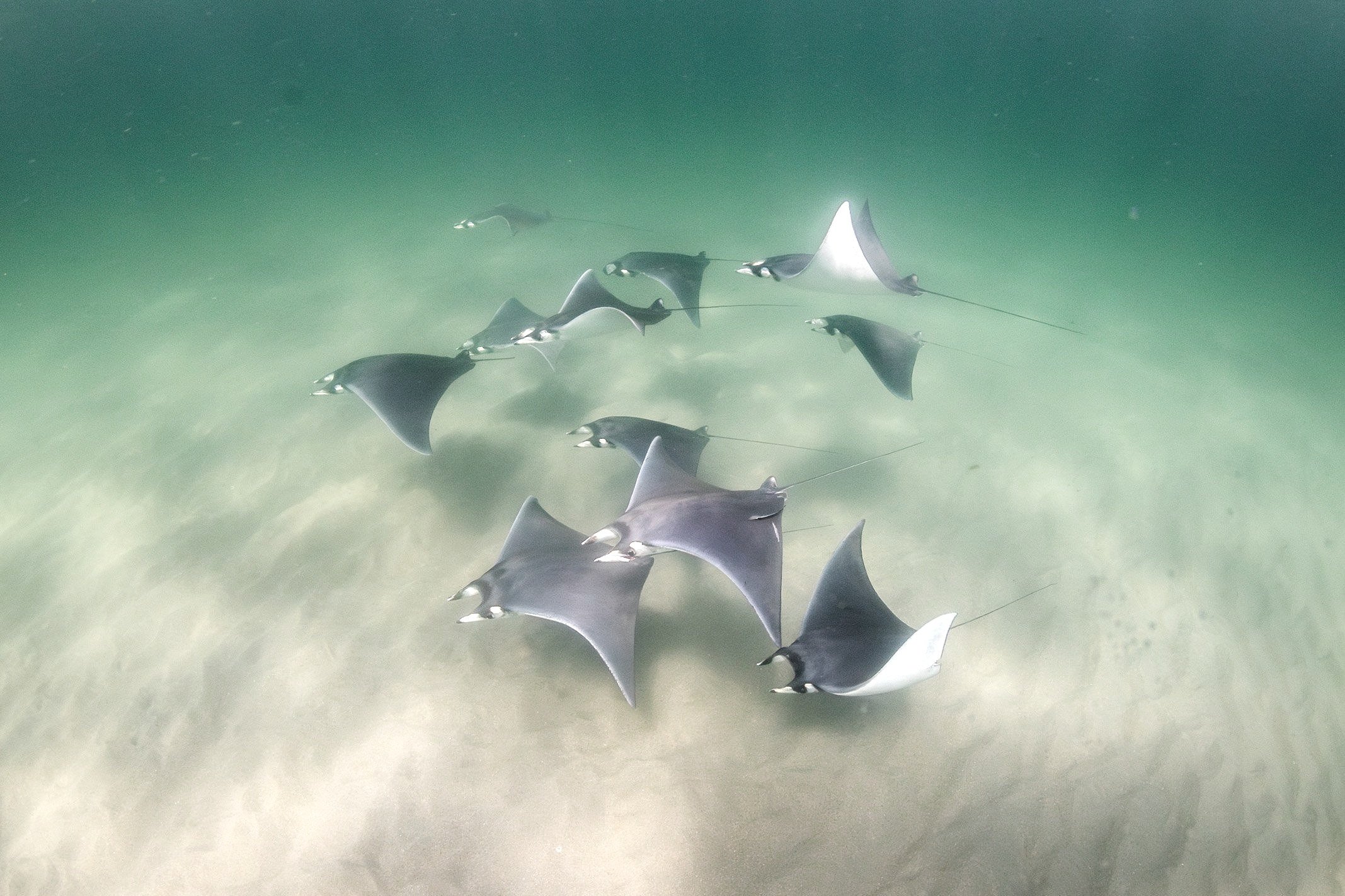
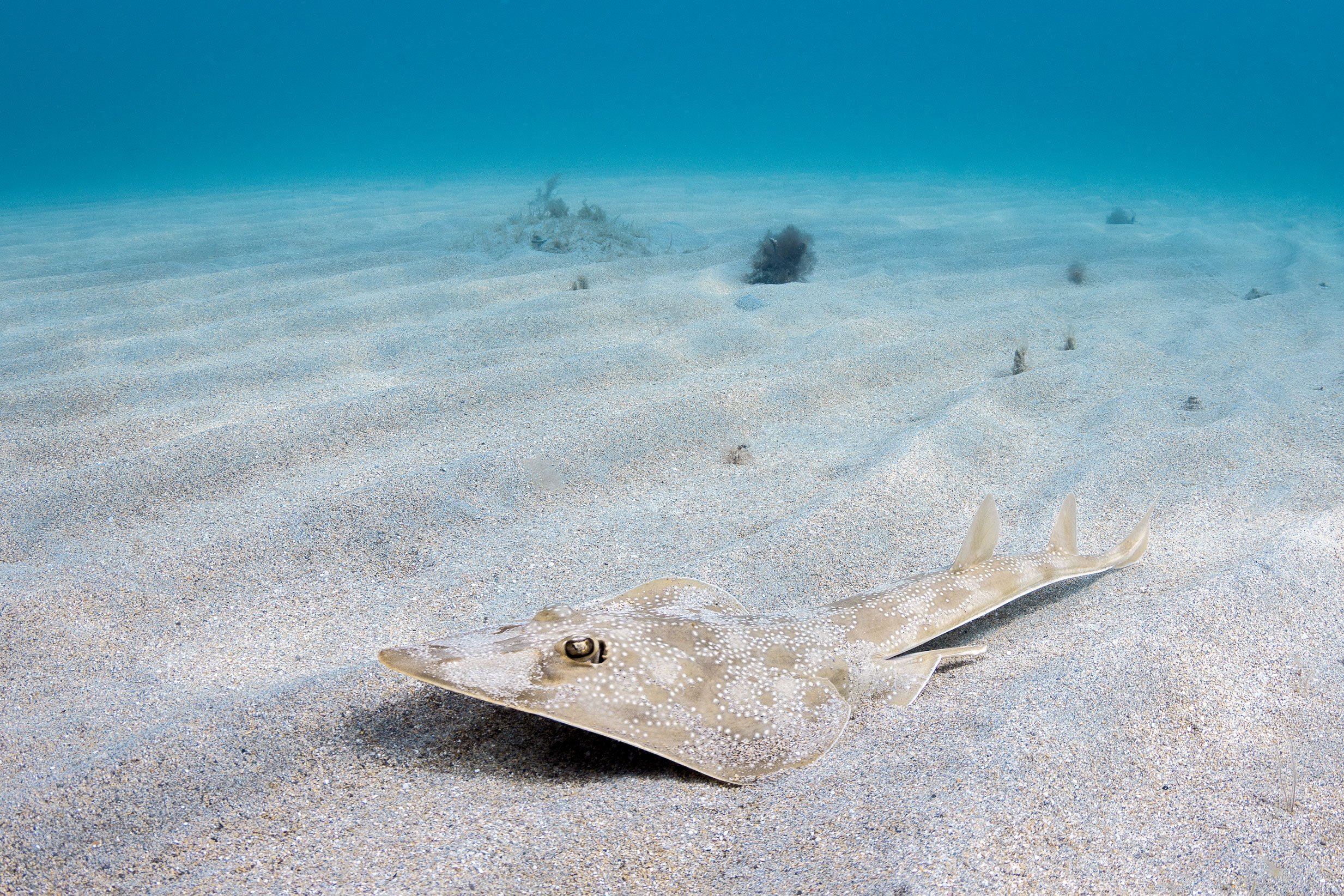
Project Overview.
Atlantic Guitarfish
The Florida Manta Project began studying Atlantic Guitarfish in south Florida in 2020. The research techniques we use to study the biology and ecology of guitarfish include in-water photography, behavioral observation, and acoustic telemetry.
We are pioneering the use of photo identification in studying this species, and have documented and will scientifically describe their reproductive behaviors. Our acoustic telemetry work, a first in this species, has demonstrated that Atlantic Guitarfish are capable of long-distance movements and may not be as sedentary as first expected!
We are working closely with partner graduate students at the University of Miami Shark Research and Conservation program to understand additional aspects of the physiology and feeding ecology of these guitarfish.
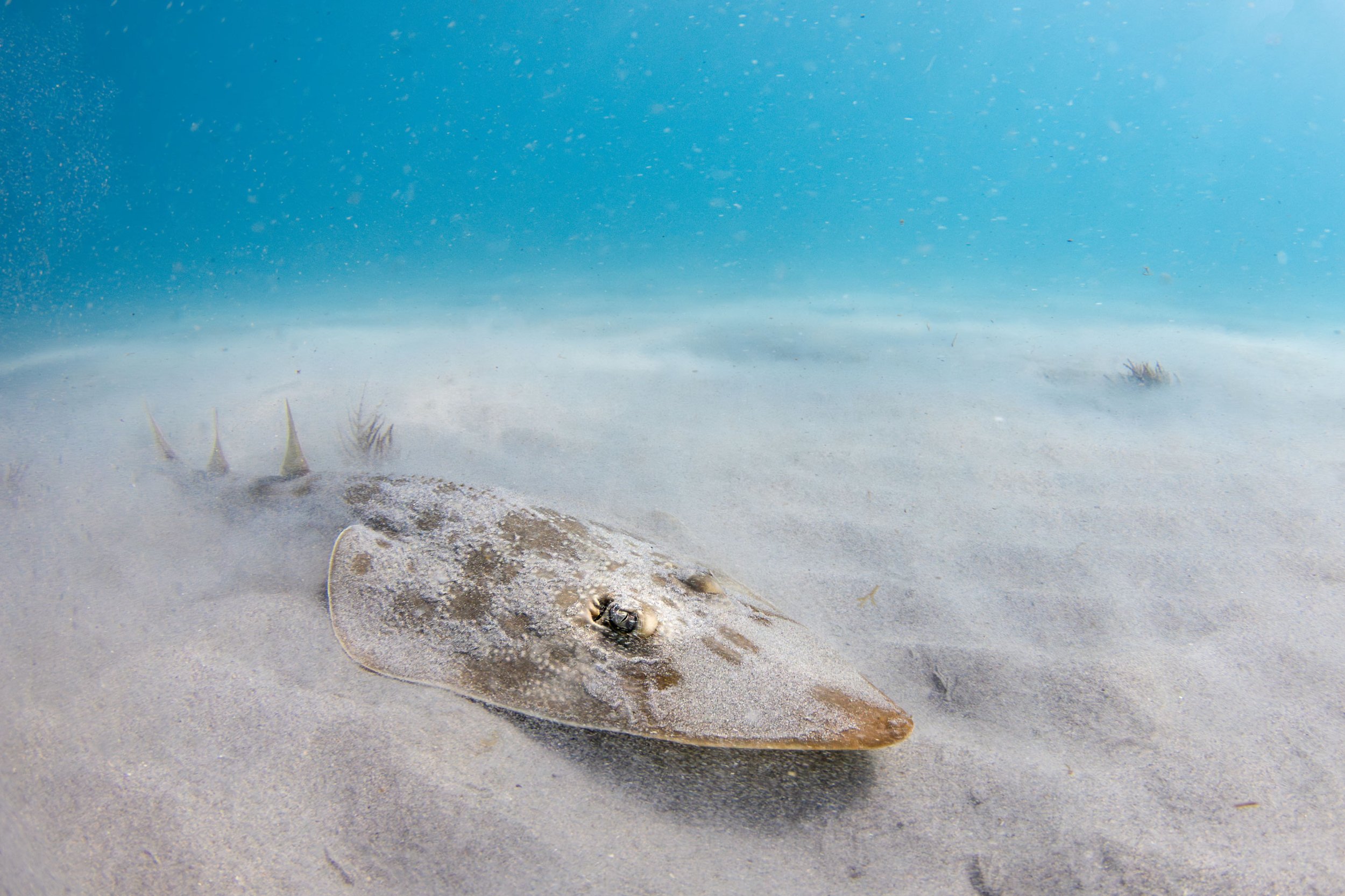
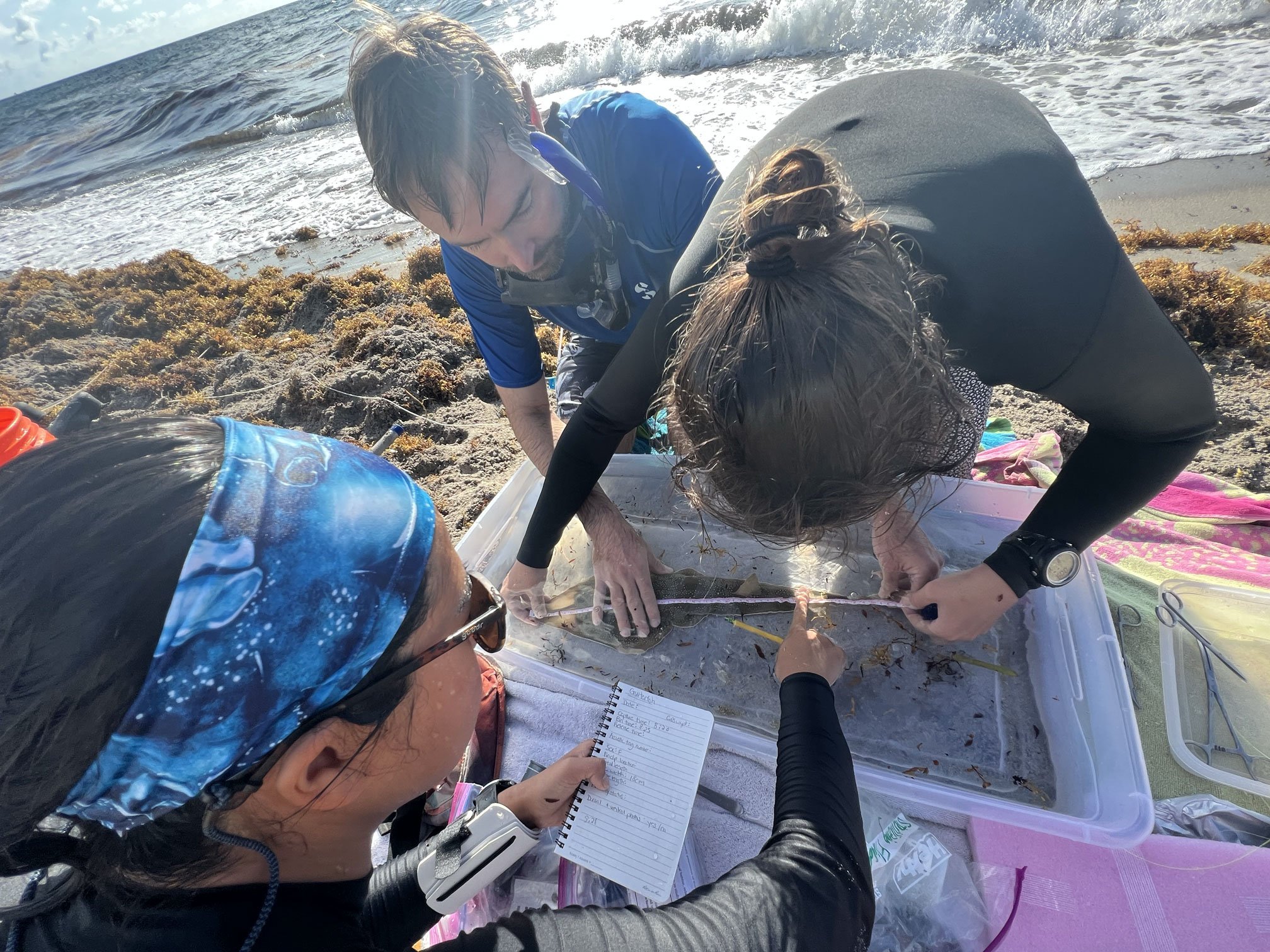
Project Overview.
Devil Rays
We are working to update distribution maps of data-poor devil rays in the Atlantic. Four species of mobula, beyond the manta ray, occur in the northwestern Atlantic. These species are the sicklefin devil ray, M. tarapacana, the west Atlantic pygmy devilray, M. hypostoma, the spinetail devilray, M. mobular, and the bentfin devilray, M. thurstoni. Little is known about the life history, ecology, and distribution of these rays. Our work on these species aims to update distribution maps on these poorly-known species and gather baseline data to serve as a foundation for further study of their biology and conservation status. The Florida Manta Project regularly encounters and collects data on the west Atlantic pygmy devil ray, and are working closely with partners at Mote Marine Laboratory in studying this species.
As these species are widely distributed and rarely encountered, reports from citizen scientists serve as the foundation for our knowledge of devil ray distribution in the northwest Atlantic,. Please report any devil ray sightings with photos to florida@marinemegafauna.org.
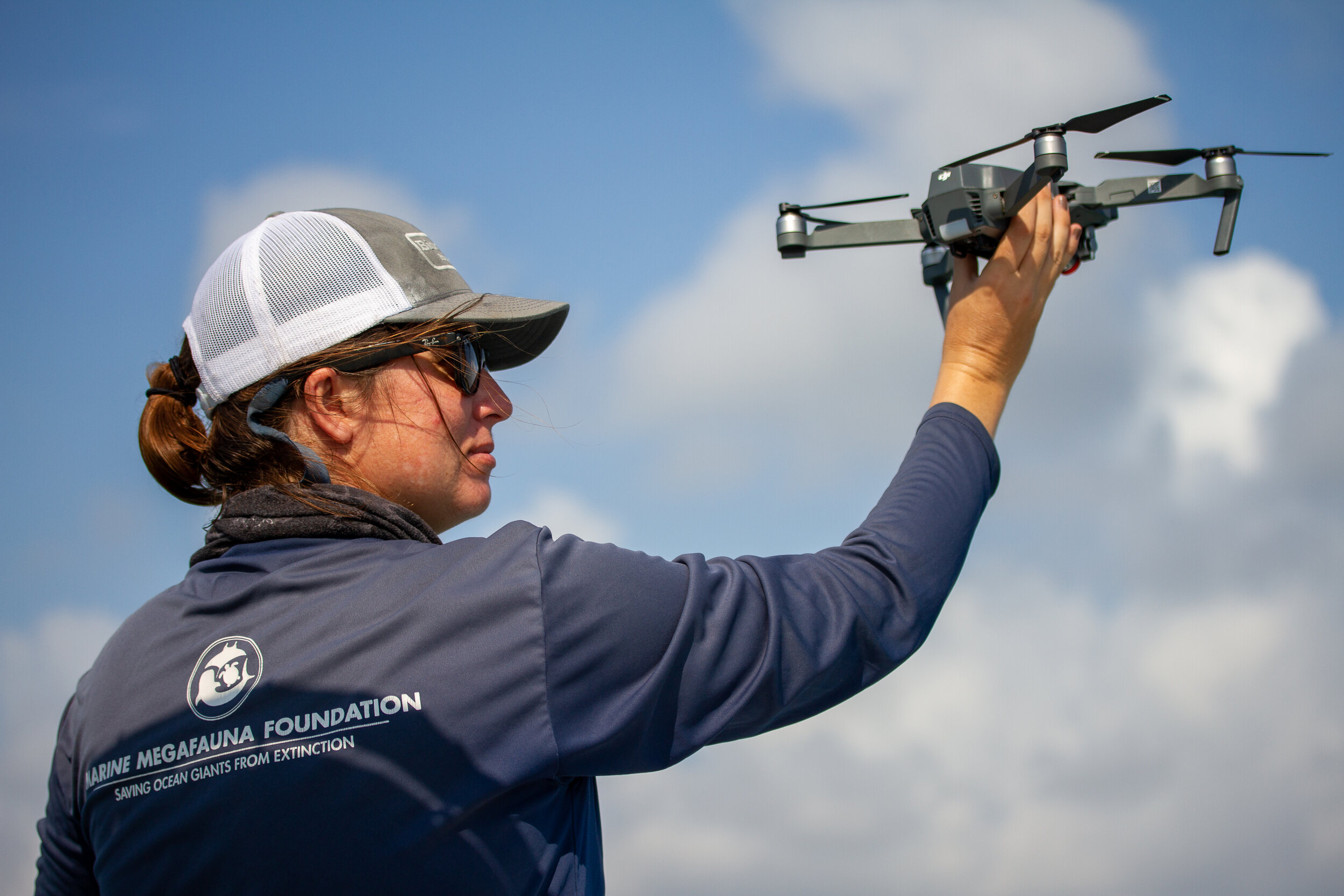
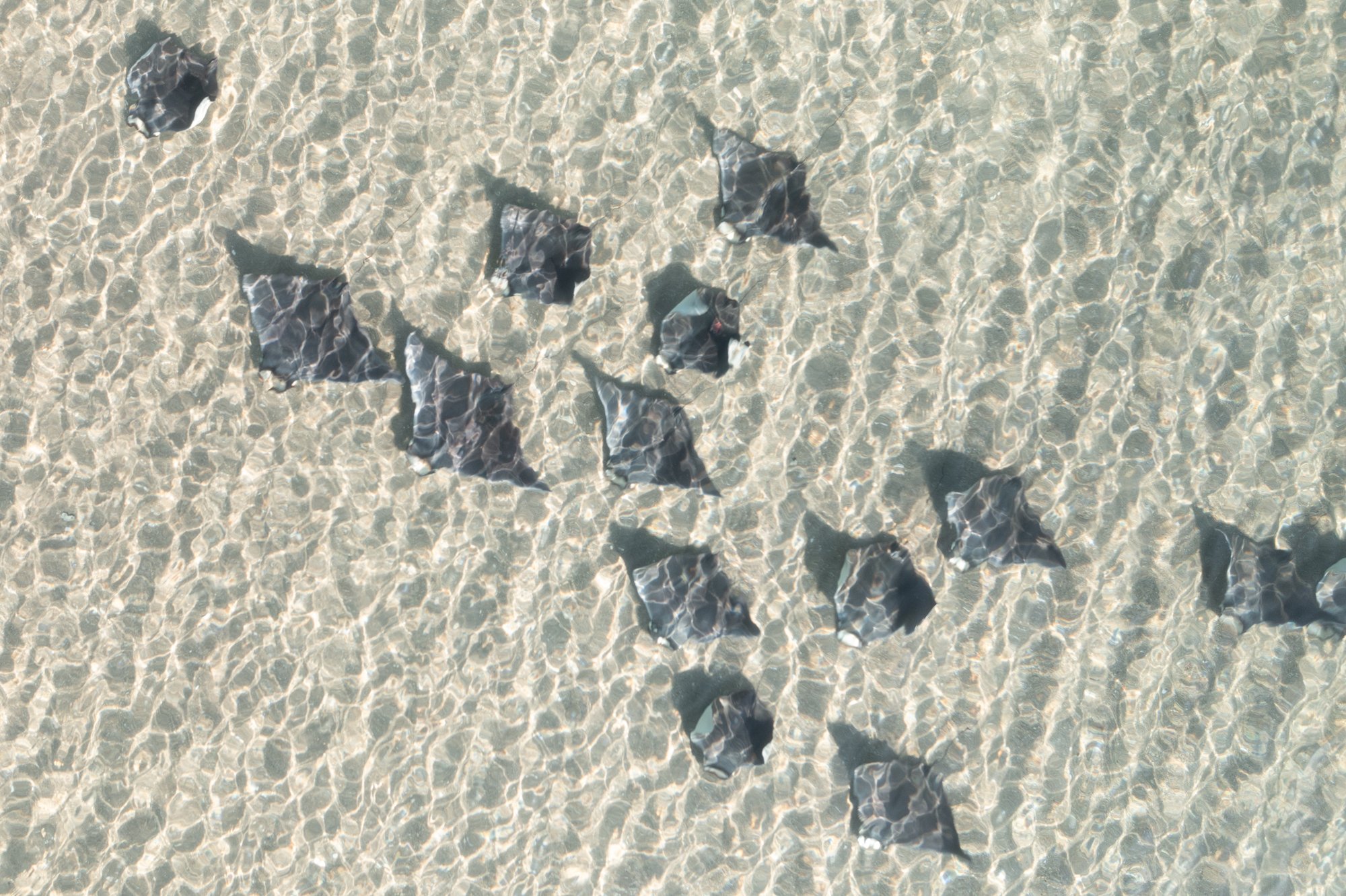
Project Leaders
Jessica Pate
Research Scientist & Country Manager
Jessica started the Florida Manta Project in 2016. Her research aims to fill knowledge gaps in the biology and ecology of Florida mantas, while raising awareness of manta ray conservation.
Collaborators
University of Miami
Mote Marine Laboratory
Kansas City Zoo
Publications
Jessica H Pate, Julia R Wilmott, Christian Jones, Calusa Horn, Nicholas A Farmer. Multiple datasets confirm range extension of the sicklefin devil ray Mobula tarapacana in the western North Atlantic Ocean off the eastern USA
Press Releases
Adopt a Florida Manta
$50
Adopt & Name a Florida Manta
$200
Support this project
Your support of the Florida Manta Project allows our small team to continue our pioneering research and conservation efforts of Floridian manta rays.
MMF is a registered 501(c)(3) tax-deductible non-profit conservation organization in the USA.

